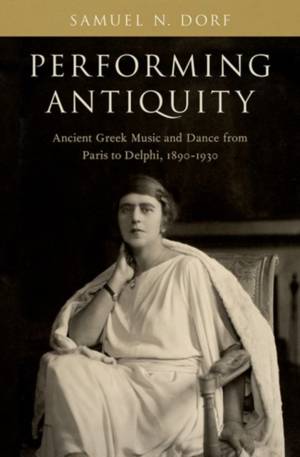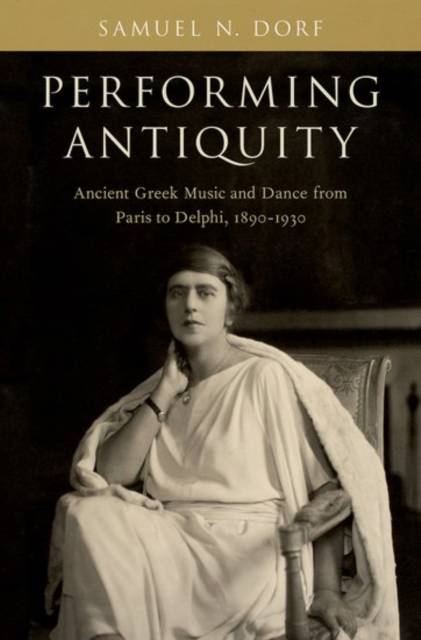
Door een staking bij bpost kan je online bestelling op dit moment iets langer onderweg zijn dan voorzien. Dringend iets nodig? Onze winkels ontvangen jou met open armen!
- Afhalen na 1 uur in een winkel met voorraad
- Gratis thuislevering in België vanaf € 30
- Ruim aanbod met 7 miljoen producten
Door een staking bij bpost kan je online bestelling op dit moment iets langer onderweg zijn dan voorzien. Dringend iets nodig? Onze winkels ontvangen jou met open armen!
- Afhalen na 1 uur in een winkel met voorraad
- Gratis thuislevering in België vanaf € 30
- Ruim aanbod met 7 miljoen producten
Zoeken
Performing Antiquity
Ancient Greek Music and Dance from Paris to Delphi, 1890-1930
Samuel N Dorf
Hardcover | Engels
€ 177,45
+ 354 punten
Omschrijving
Performing Antiquity: Ancient Greek Music and Dance from Paris to Delphi, 1890-1930 investigates collaborations between French and American scholars of Greek antiquity (archaeologists, philologists, classicists, and musicologists), and the performing artists (dancers, composers, choreographers and musicians) who brought their research to life at the birth of Modernism. The book tells the story of performances taking place at academic conferences, the Paris Opéra, ancient amphitheaters in Delphi, and private homes. These musical and dance collaborations are built on reciprocity: the performers gain new insight into their craft while learning new techniques or repertoire and the scholars gain an opportunity to bring theory into experimental practice, that is, they have a chance see/hear/experience what they have studied and imagined. The performers receive the imprimatur of scholarship, the stamp of authenticity, and validation for their creative activities. Drawing from methods and theory from musicology, dance studies, performance studies, queer studies, archaeology, classics and art history the book shows how new scholarly methods and technologies altered the performance, and, ultimately, the reception of music and dance of the past. Acknowledging and critically examining the complex relationships performers and scholars had with the pasts they studied does not undermine their work. Rather, understanding our own limits, biases, dreams, obsessions, desires, loves, and fears enriches the ways we perform the past.
Specificaties
Betrokkenen
- Auteur(s):
- Uitgeverij:
Inhoud
- Aantal bladzijden:
- 240
- Taal:
- Engels
Eigenschappen
- Productcode (EAN):
- 9780190612092
- Verschijningsdatum:
- 5/12/2018
- Uitvoering:
- Hardcover
- Formaat:
- Genaaid
- Afmetingen:
- 160 mm x 236 mm
- Gewicht:
- 566 g

Alleen bij Standaard Boekhandel
+ 354 punten op je klantenkaart van Standaard Boekhandel
Beoordelingen
We publiceren alleen reviews die voldoen aan de voorwaarden voor reviews. Bekijk onze voorwaarden voor reviews.











